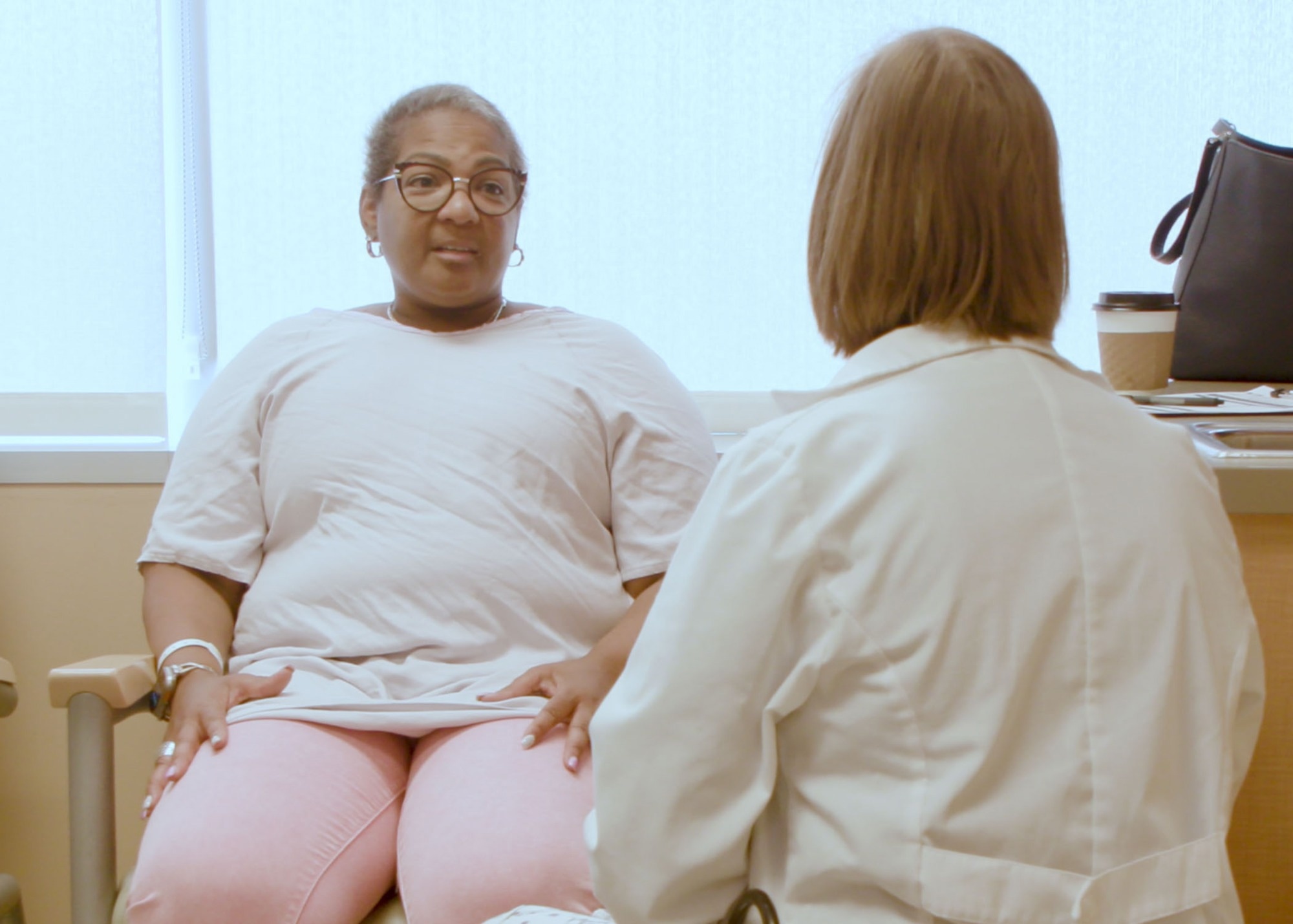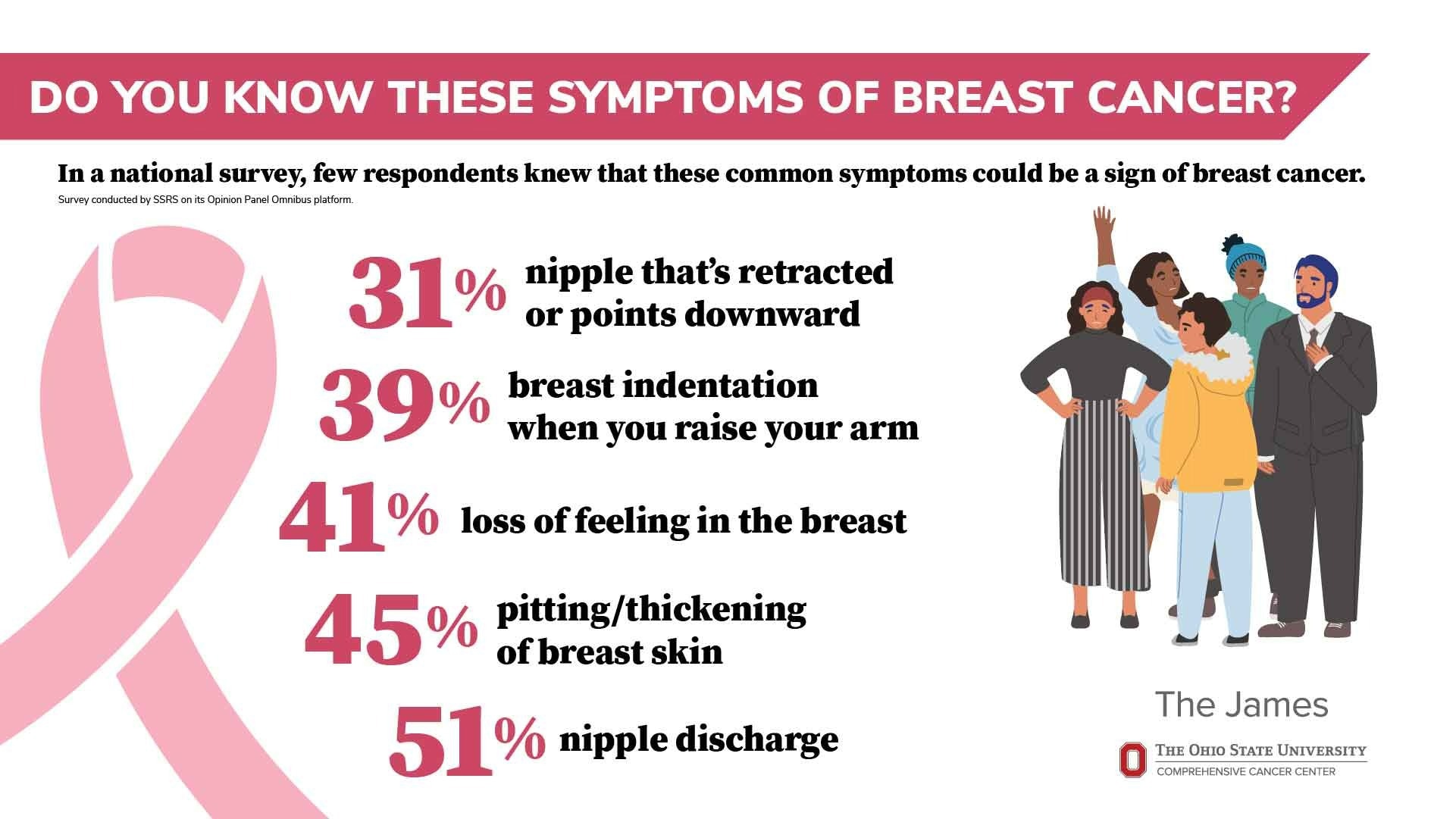In breast cancer awareness, comprehensive knowledge of symptoms remains important in ensuring timely intervention and effective treatment. Recent findings from a survey conducted by The Ohio State University Comprehensive Cancer Center – Arthur G. James Cancer Hospital and Richard J. Solove Research Institute (OSUCCC – James) have shed light on critical gaps in public understanding, underscoring the urgency of enhanced education and awareness.

Insights into lesser-known breast cancer symptoms
The survey emphasized the need to look beyond the conventional understanding of breast cancer symptoms. Dr. Ashley Pariser, a renowned breast medical oncologist at OSUCCC – James, highlighted the significance of recognizing subtle indicators, urging individuals to remain vigilant.
The survey’s findings underscored the limited recognition of symptoms such as changes in nipple appearance, breast puckering, and alterations in breast sensation. These often-overlooked manifestations serve as crucial pointers for early detection, indicating the need for a more comprehensive understanding of the disease’s diverse presentations.
Being aware of one’s body should be across the board for men and women and looking for common symptoms. So for men, that’s going to be a painless lump and usually 50% of the time it’ll involve the nipple area and changes there.
Ashley Pariser, MD
Navigating confusion surrounding breast cancer screening guidelines
Navigating the maze of breast cancer screening guidelines remains a challenge for many. Particularly among younger women, the survey unveiled significant confusion and misconceptions regarding the recommended protocols. Dr. Pariser emphasized the importance of educating individuals about the significance of early detection initiatives, underscoring the need for personalized screening plans tailored to individual risk factors. Such initiatives can be essential in ensuring timely intervention and improved prognoses.
Challenging complacency and urging vigilance
Confronting the prevalent ‘Won’t Happen to Me’ mentality, the survey’s results revealed a stark disconnect between perception and reality. Despite the alarming prevalence of breast cancer, the survey indicated a widespread belief among respondents that they were not susceptible to the disease.

Image Credit: The Ohio State University Wexner Medical Center/OSUCCC
Dr. Pariser emphasized the need for proactive vigilance, especially for individuals at higher risk, including those with dense breast tissue and individuals from specific ethnic backgrounds.
Most people know that breast cancer can present as a painless lump or mass in the breast. We want to make sure that everyone knows that there are less common symptoms of breast cancer.
Ashley Pariser, MD
Additionally, the survey highlighted the importance of fostering awareness initiatives and promoting regular health monitoring, emphasizing the critical role of community engagement in combating complacency and fostering proactive health management.
Conclusion
With the journey towards enhanced breast cancer awareness and early detection, the need for a holistic approach is undeniable. The survey’s findings serve as a clarion call for intensified educational initiatives and community engagement, stressing the importance of dispelling misconceptions and fostering a proactive approach toward health management.
By fostering a comprehensive understanding of the diverse manifestations of breast cancer and advocating for tailored screening protocols, we take significant strides toward empowering individuals and fostering a proactive, informed approach to breast health.
With continued research and collaborative efforts, the horizon of breast cancer prevention and treatment continues to expand, offering renewed hope and resilience in the fight against this formidable disease.
Source link
credite
